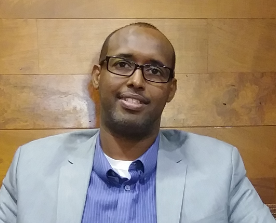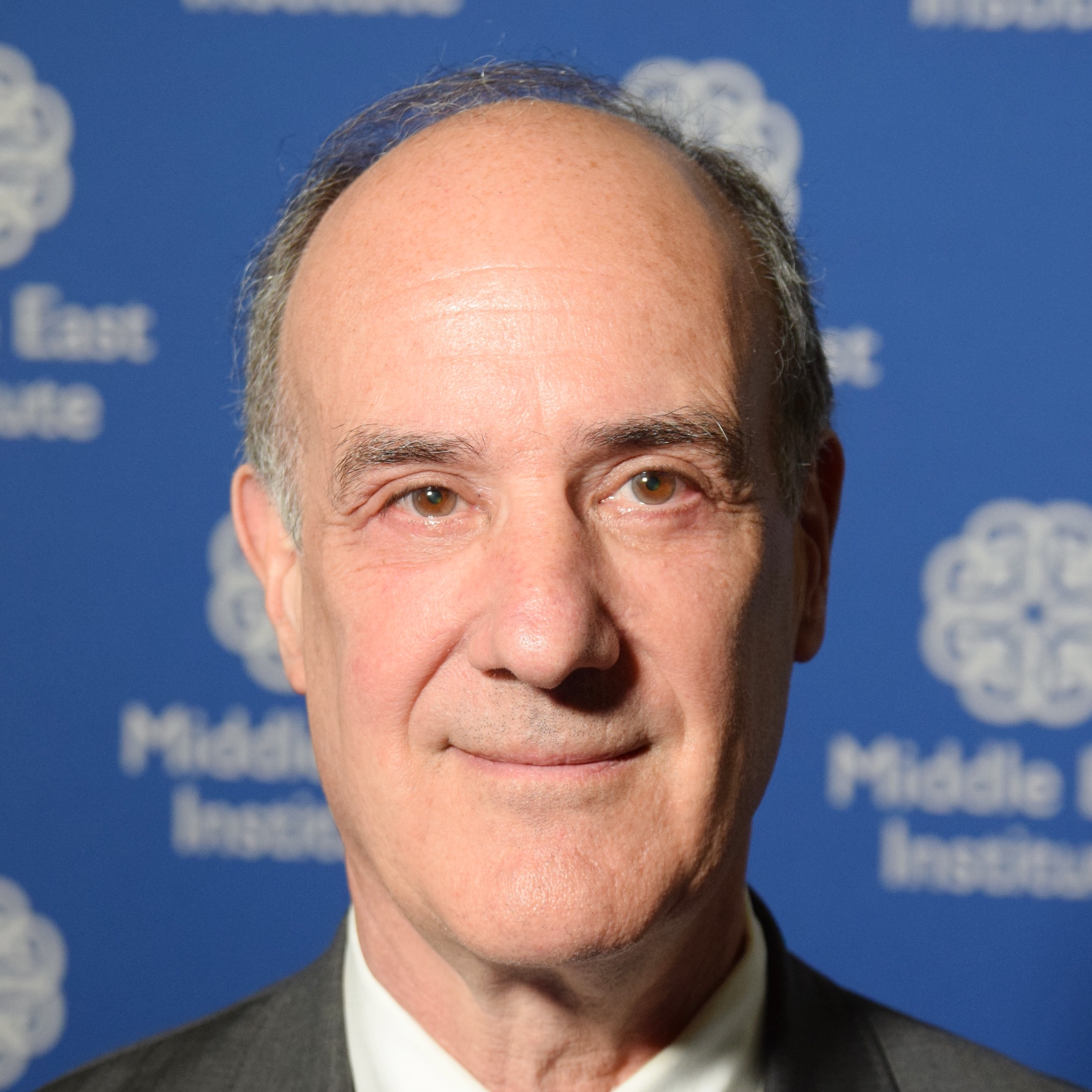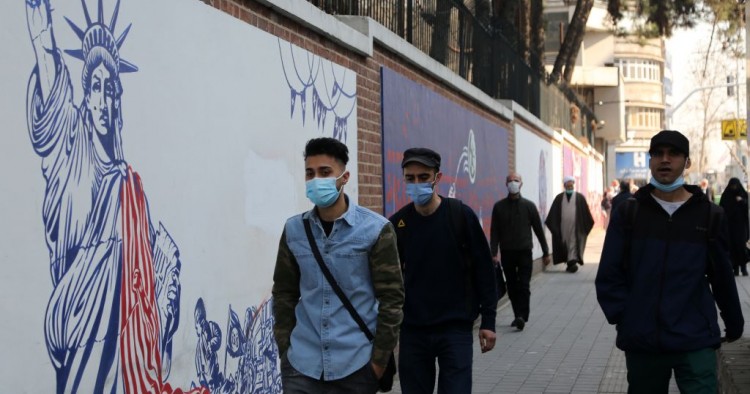Contents:
- Pursuing diplomacy with Iran without giving up US leverage
- Somalia is in the spotlight at the UN amid worsening election crisis
- Libya’s challenge to prevent history from repeating itself
- Muslim-tracking apps attract scrutiny in Congress
- NATO decision is a win-win for Washington and Baghdad, but pro-Iran militias remain opposed
- New protests greet government appeasement steps in Algeria
- Afghanistan: To leave or not to leave, that remains the question
Pursuing diplomacy with Iran without giving up US leverage
Nazee Moinian
Non-resident Scholar

The Islamic regime in Tehran might have been waiting to exhale during the presidency of Donald Trump. But it is not breathing any easier since President Joe Biden has asked Iran to return to full compliance on the nuclear deal before the U.S. repeals its sanctions.
In response Tehran has countered with some provocative measures of its own, signaling that any delay in a return to the Joint Comprehensive Plan of Action (JCPOA), as finalized in 2015, will result in increasing costs for the U.S. Aside from enriching uranium to 20%, producing uranium metal — which can be used to form the core of a nuclear bomb — and threatening to expel U.N. inspectors unless the U.S. lifted sanctions by Feb. 21, a deadly attack was launched by Iran-backed militias against U.S. forces in Iraq, killing a civilian contractor and wounding a U.S. service member.
At least for now the Biden administration is looking past Iran’s unwise and dangerous temper tantrums.
The State Department’s recent announcement that the U.S. seeks a diplomatic way forward with Iran may seem counterintuitive to the opponents of the nuclear deal, who fear that the administration is moving too quickly. If the JCPOA was flawed, they argue, a more comprehensive deal requires a more protracted timeline, balancing Tehran's demands against its own weakened position.
But entering into a European-sponsored diplomatic forum need not result in the immediate loss of immense American leverage. It took years to reach the previous accord, and in the meantime, U.S. participation in talks bolsters the badly frayed transatlantic alliance and increases the cost of future Iranian provocations. With the U.S. once again committed to diplomacy, continued Iranian lethal force and nuclear violations will only serve to further isolate Tehran.
President Biden deserves credit for having assembled a team of distinguished and diverse foreign policy experts. In the talks, they will need to present a united front alongside our European allies that demonstrates American good-faith efforts to resolve foreign policy crises diplomatically, while simultaneously making use of American power and leverage to reach an enduring accord that includes Iran’s missile program and addresses Iranian support for terrorism and violation of human rights.
Somalia is in the spotlight at the UN amid worsening election crisis
Guled Ahmed
Non-Resident Scholar

On Feb. 19 Somali presidential candidates and opposition alliance parties planned to hold a major demonstration against what they see as the illegitimate rule of Mohamed Abdullahi Farmajo, whose presidential mandate expired on Feb. 8. On the night before the protests, however, the hotel where two former Somali presidents were staying came under heavy fire — an attack former Prime Minister Hassan Khaire described as an assassination attempt and former President Sheikh Sharif Sheikh Ahmed said was carried out by government forces. The attack resulted in the death of several of the former presidents’ bodyguards, who successfully stopped the assault after a 30-minute firefight.
The next morning when the demonstration started, it too came under attack, with former PM Khaire pointing the finger at Farmajo-allied paramilitary units for firing live bullets on peaceful demonstrators led by him and other opposition leaders. This was followed by heavy shelling of Mogadishu’s Aden Adde International Airport, resulting in the cancellation of all flights and damaging nearby shops and restaurants.
According to unconfirmed reports, more than 20 people were killed in the attacks and doctors and medical personnel were reportedly prevented from attending to or evacuating the injured, who later died. If so, this could potentially provide grounds for bringing war crimes charges, as willfully preventing the rendering of medical aid to the injured, wounded, and sick is outlawed under the articles of the Geneva Convention.
The Farmajo regime then embarked on a coordinated disinformation campaign, with Hassan Hundubey Jimale, the Somali minister of internal security, issuing a statement blaming the opposition and peaceful protesters for inciting the violence. This was reinforced by statements from the U.N. Somalia mission and U.S embassy in Mogadishu that referred to the attacks simply as “clashes.”
Much like former Somali dictator Mohamed Siad Barre, who carried out a process of Marehenization of decision-making, key government ministries, and the military, Farmajo has stacked key ministries, military positions, and diplomatic missions with his own people to retain his hold on power. He is betting on his clan militia, Turkish-trained forces, and the African Union Mission in Somalia (AMISOM) to cling to power beyond his term.
The majority of the military units in Mogadishu are from the Hawiye clan and clan loyalty persists as an important source of protection in a fragile country like Somalia that lacks an effective army. If the stalemate continues, the Somalia National Army (SNA) may split in Mogadishu to join opposing parties that are majority Hawiye. The tribalization of the military under the Farmajo government, especially the Danab special forces, could have been avoided had the U.S. applied greater pressure. Similarly, the withdrawal of U.S. forces from Somalia not only emboldened Farmajo to continue his silent coup, but also weakened and divided the Danab army units, which were funded and trained by the U.S. Department of Defense. This will only serve to undermine the country’s stability and benefit the al-Qaeda-linked group al-Shabab.
That Farmajo remains in office beyond the end of his term on Feb. 8 and has been allegedly involved in attacks on protesters and presidential candidates makes him ineligible to be part of any realistic future political solution for Somalia. This was reflected in the letter sent by 15 Somali presidential candidates to U.N. Security Council, which plans to hold a meeting on the issue on Feb. 22. The candidates also requested the U.N. Security Council to set up a transitional council government. This is the only viable option to hold an election and ensure a peaceful transition of power while avoiding yet another civil war in this fragile country.
Follow on Twitter: @GuledWiliq
Libya’s challenge to prevent history from repeating itself
Jonathan M. Winer
Non-Resident Scholar

By Feb. 26, Libya’s new interim Government of National Unity (GNU), selected by the U.N.-backed Libyan Political Dialogue Forum (LPDF) on Feb. 5, is supposed to send a slate of proposed cabinet officials to the House of Representatives (HoR) for approval.
Getting Libya’s Parliament to say “yes” would be a major success for the GNU and incoming Libyan Prime Minister Abdul Hamid Mohammed Dbeibah, and mark a fundamental contrast to the failure of the HoR to ratify cabinets proposed by departing Prime Minister Fayez al-Sarraj.
The problem now is countering would-be spoilers. The ticket that was widely expected to emerge as the victors in the LPDF process was headed by Libya’s interior minister, Fathi Bashagha, and HoR Speaker Aguila Saleh Issa, the latter of whom has styled himself as Libya’s president for years. Bashagha has endorsed the new GNU and can run for high office when Libya holds elections, scheduled for Dec. 24, 2021. But Aguila? In 2016, he successfully maneuvered to prevent any al-Sarraj cabinet from ever being approved. While Aguila too says he accepts the result of the LPDF, the risk is that he might undertake similar tactics to prevent approval of a Dbeibah government, with the goal of sending the process back to the LPDF to give himself another shot.
An early test is coming this week in meetings of the HoR scheduled to take place in Sirte, convened by Aguila, and blessed by the members of the proposed new government following meetings of western members of the HoR in Sabratha last week. The agenda includes “adopting the outcomes” of the LPDF — and selecting a new speaker for the HoR from the southern part of Libya, which would end Aguila’s veto power. If that session succeeds, the next step would be the announcement of the proposed cabinet, for endorsement by the HoR within 21 days. A failure to achieve that by about March 19 would send the entire government back to the LPDF for further action, which hopefully would be a quick and simple vote to ratify the whole thing. Any other outcome risks triggering the last thing that Libya needs — renewed chaos, as underscored by an attempted assassination of Bashagha Feb. 21, when unidentified gunmen opened fire on his armored motorcade in Tripoli.
Muslim-tracking apps attract scrutiny in Congress
Michael Sexton
Fellow and Director of MEI's Cyber Program

A group of 18 members of the House of Representatives has written a letter of inquiry to Defense Secretary Lloyd Austin and Director of National Intelligence Avril Haines regarding the U.S. government’s apparent purchase of personal data from a variety of smartphone applications tailored to the Muslim community. The letter follows a report in Vice that U.S. Special Operations Command (USSOCOM) has purchased granular location data from two companies — Babel Street and X-Mode — that is gathered from several seemingly innocuous phone apps. These include apps of general interest, such as a step counter, a storm tracker, a Craigslist app, and an app emulating a bubble level tool, as well as a dating app called Muslim Mingle, but the most popular is Muslim Pro, a prayer reminder and Quran app with 98 million downloads worldwide.
Lawyers for X-Mode have confirmed to Senator Ron Wyden (D-OR) that it sells location data, including from phones in the United States, to the U.S. military, while USSOCOM says the data it purchases solely assists in overseas special forces operations. Muslim Pro, which collects users’ location data to show the direction of Mecca for prayer times, has said it will no longer share this data with X-Mode. Babel Street’s location data is anonymized, but location data is notoriously easy to de-anonymize, as The New York Times has illustrated vividly.
The letter to Secretary Austin and Director Haines focuses specifically on the issue Senator Wyden sought clarification on: whether American citizens’ data is being collected, and, if so, what is being done with it. Senator Wyden, who has previously introduced legislation to protect Americans’ GPS data from warrantless collection by law enforcement, says he plans to introduce legislation to close the loophole whereby Americans’ location data may be purchased without a warrant via third parties like Babel Street and X-Mode. The revelations and ensuing action in Congress harken back to the privacy and civil liberties battles in the wake of 9/11, and point to a confluence of private sector “surveillance capitalism” and governmental intelligence and law enforcement surveillance.
Follow on Twitter: @MikeESexton
NATO decision is a win-win for Washington and Baghdad, but pro-Iran militias remain opposed
Randa Slim
Senior Fellow and Director of Conflict Resolution and Track II Dialogues Program

Last week, NATO Secretary-General Jens Stoltenberg announced that the size of the Denmark-commanded NATO mission in Iraq will increase from 500 personnel to around 4,000. Noting that the increase will be incremental and conditions-based, Mr. Stoltenberg added that more Iraqi security institutions and geographical areas outside greater Baghdad will be included in the mission’s training activities. He said the increase will be carried out in full consultation with the Iraqi government and in close coordination with the Global Coalition to Defeat ISIS.
Iraqi National Security Adviser Qasim al-Araji commented that the NATO mission is in Iraq at the request of the Iraqi authorities and that any increase in the size of the mission will come at Baghdad’s request. He added that Iraq will benefit from NATO’s experience, especially as ISIS remains a threat to the country. However, the pro-Iran parliamentary coalition Fatah (“Conquest”) begged to differ. It said in a statement this past Sunday that increasing the size of the NATO mission is just an excuse to increase the U.S. military footprint in Iraq. Mr. Naim al-Aboudi, a member of the coalition, said Fatah was not informed of the government decision to increase the size of the mission and that the Iraqi Parliament “will not let NATO forces enter Iraq.”
Iraq has recently witnessed an uptick in rocket attacks targeting Iraqi military bases housing U.S. forces and civilian contractors. On Feb. 15, dozens of rockets were launched at the military base inside Erbil’s airport in the Kurdistan Region of Iraq, killing one civilian contractor and wounding nine others, including a U.S. service member. Last Saturday, at least four rockets hit al-Balad base 80 km north of Baghdad, wounding one contractor who works with Sallyport, a U.S. defense company servicing Iraq’s F-16 program. The second attack took place two days after the NATO announcement. Today, three rockets fell on Baghdad’s Green Zone.
Both the Biden administration and the Iraqi government needed the NATO decision. On the one hand, burden sharing of the training mission means the Biden administration can spend less time and resources in Iraq. On the other hand, the Iraqi government can claim it is meeting the pro-Iran Iraqi militias’ demand for U.S. forces to leave Iraq. To date, however, it does not look like it has made a convincing argument to these militias.
Follow on Twitter: @rmslim
New protests greet government appeasement steps in Algeria
Robert S. Ford
Senior Fellow

On Feb. 22 many Algerian cities witnessed the largest demonstrations in a year to mark the second anniversary of the Hirak street protest movement against the ruling system. The marches showed that large numbers of Algerians demand much deeper political change beyond the December 2019 presidential election and the new constitution adopted last year in a referendum marked by very low turnout. President Abdelmadjid Tebboune last week announced that he would dissolve the lower house of Parliament and call new elections. In his national TV address, Tebboune urged young Algerians to participate in the elections and infuse “new blood” into the widely discredited political system. Casting himself as a reformer, Tebboune followed that announcement with a presidential pardon of 33 activists, social media bloggers, and journalists, who were released on Feb. 19 and 20. On Feb. 21 Tebboune then changed seven of the 35 cabinet ministers, primarily those overseeing sectors of the economy.
The pandemic has hit Algeria’s economy hard, including its small businesses, as well as the vital revenues from the oil and gas export industry. There are some hopeful signs, notably a rise in world energy prices that will boost Algeria’s foreign exchange earnings and indications that the number of new COVID-19 cases is declining. The majority of the population, however, faces gradually worsening unemployment, shortages of affordable housing, and price inflation. The large, widespread street protests on Feb. 22, and Tebboune’s plea to young people last week, indicate at least some in the government recognize their legitimacy problem. The ruling system is loath to change deeply, however. A former general turned politician who was jailed for criticizing the army remains imprisoned. The army command last week issued a communique warning of “Moroccan-Zionist threats” to national security. The parties that dominate the upper house of Parliament and have long supported the status quo over the weekend confirmed one of their own as the new senate leader. Unless the government dramatically levels the electoral playing field, many opposition parties and voters will again boycott the June parliamentary elections, impeding Tebboune’s effort to boost the government’s sagging credibility.
Follow on Twitter: @fordrs58
Afghanistan: To leave or not to leave, that remains the question
Marvin G. Weinbaum
Director, Afghanistan and Pakistan Studies

NATO Secretary-General Jens Stoltenberg’s words that “NATO will leave Afghanistan when the time is right” are a good indicator of the thinking in Brussels and Washington as well. Delivered after a NATO ministerial meeting last week, Stoltenberg left little doubt that NATO will stand behind whatever decision the Biden administration may take regarding keeping U.S. troops in Afghanistan past the deadline set in last February’s agreement with the Taliban. If Washington concludes that the Taliban has not upheld its end of the accord, the U.S. may well declare its intention to maintain a small contingent of U.S. forces for counter-terrorism operations.
By choosing to remain, the U.S. and its NATO allies stand the strong chance of having the Taliban break off the already fragile peace talks in Doha. The Taliban leadership has threatened to respond to the U.S. reneging on the withdrawal date by turning up the heat of the insurgency, including specifically targeting foreign forces. In an effort to salvage what remains of the peace process, two approaches have emerged, one to play for time, the other to change track to a political settlement.
The former approach would seek to put off the U.S. having to make the difficult withdrawal decision by calling for the Taliban to agree to an extension of the withdrawal dateline, in order to give additional time for inter-Afghanistan negotiations to succeed. Some have suggested a three-month extension, others six months. The recent U.S. Afghanistan Study Group report, stressing the need for conditionality, sets no time frame for the exit of American forces. For their part, Taliban leaders have been adamant in their insistence on the U.S. fully honoring the terms of the February agreement. Some pundits have suggested that the Taliban might accept an extension if given to believe it can win the release of thousands more government-interned prisoners and the removal of all remaining international sanctions. Unclear, however, is how any additional time can be expected to remove fundamental differences that have for many months blocked any real progress in the talks.
As for the second approach, meant to shortcut the Doha talks with an agreement to form an interim government, there circulated three weeks ago a Taliban-approved document for power-sharing, rumored to have U.S. endorsement. Its dismissal by the Ghani government and most Afghan politicians, seeing it as paving the way to power for the Taliban, has apparently shelved the initiative.
Whether it is better for peace in Afghanistan and U.S. security interests to maintain or soon remove the last of American troops remains the question. President Joe Biden has described the possibility of the Taliban regaining control as “haunting.” A fear of his administration being tarnished with having lost Afghanistan may weigh heavily in the final decision.
This article was co-authored by Jack Ryan and Ghasharib Shoukat, research assistants to Marvin G. Weinbaum.
Follow on Twitter: @mgweinbaum
Photo by Fatemeh Bahrami/Anadolu Agency via Getty Images
The Middle East Institute (MEI) is an independent, non-partisan, non-for-profit, educational organization. It does not engage in advocacy and its scholars’ opinions are their own. MEI welcomes financial donations, but retains sole editorial control over its work and its publications reflect only the authors’ views. For a listing of MEI donors, please click here.













